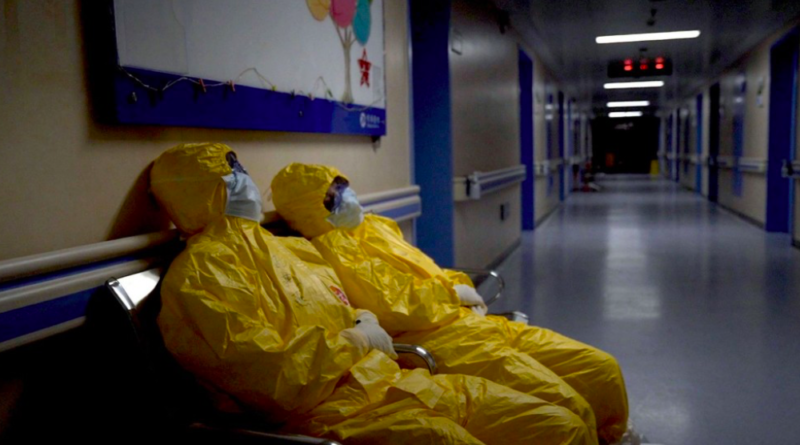REVIEW: ’76 Days’ details early days of COVID-19 pandemic in Wuhan, China
Photo: 76 Days is a searing documentary that looks at the early days of the COVID-19 pandemic in Wuhan, China. Photo courtesy of Film Forum / Provided by official site.
In many ways, this reviewer was dreading watching 76 Days, the new documentary from directors Hao Wu, Weixi Chen and an anonymous filmmaker. The 90-minute film, which is now streaming on New York City’s Film Forum website, is an intimate and distressing look at the early days of the COVID-19 pandemic in Wuhan, China, where the deadly virus first struck. The images of doctors and nurses being overwhelmed with a growing number of patients seeking help seems almost too soon to comprehend, too raw to contextualize. After all, the pandemic is still surging around the world, especially in the United States.
Yet, after experiencing these 90 minutes, it becomes clear that the images are necessary to endure. This is the frontline of the war against the coronavirus, and the public would benefit by realizing the sacrifice and dedication that went into caring for patients in these quarantined zones. While the headlines from the Trump administration about Wuhan and China are constantly about pointing fingers and spreading unfounded news, 76 Days takes a completely different approach. This is a portrait of a city under severe pressure, with patients sidelined due to respiratory issues and some of them losing the battle against the virus.
These scenes, with healthcare workers decked out in full-body quarantine suits, may have seemed like science fiction one year ago, but of course they have become commonplace around the world. There’s the worry of an expectant mother who is rushed into surgery for a C-section. There’s a wife clamoring to see her sick husband. There’s a crowd of people seeking treatment and not enough beds to go around. There are ventilators and masks and hand sanitizer. Most faces are obscured simply because of face coverings — the symbol of 2020.
There’s obvious bravery on display. None of the nurses and doctors hesitate for one moment to help a patient, and they are not only dispensing medical help. They also hold up smartphones so that the sick patient can talk to a family member. They scrub down the few items a deceased person leaves behind, this way they can be returned to the grieving family. They write inspirational messages on their medical gowns. They do not run away from an older man who can’t seem to keep his mask over his mouth and nose; instead, they place a calming hand on his back and help him to find his room.
There are no politics within these 90 minutes (a quick reference to “Grandpa” being a lifelong Communist Party member is about it), and there is no segment about the national or international responses (or lack thereof). Instead, the images speak for themselves. The viewer understands that Wuhan, China, is under lockdown, and this hospital is strained to its limits.
The documentary has an all-access pass to these patients and these medical corridors. One wonders how the cameras were able to glide through the patients’ rooms, into the surgical ward and out on to the sidewalks surrounding the building with seemingly such ease. How was consent given for these highly personal images to be broadcast in a movie? The documentary team must have been as dedicated as these front-line workers, no doubt putting themselves at risk to capture these images for the world to see.
To put it simply, 76 Days is a powerful document that should remind everyone of the challenges from the recent past and the struggles still to come.
By John Soltes / Publisher / John@HollywoodSoapbox.com
76 Days (2020). Directed by Hao Wu, Weixi Chen and Anonymous. Running time: 93 minutes. MTV Documentary Films. Rating: 


 Click here for more information.
Click here for more information.

